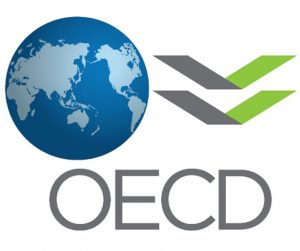
TIB reacts to the OECD's negative assessment of Belgium's foreign policy in the fight against corruption.
In 1999, Belgium became a member of the OECD Convention on Combating Bribery of Foreign Public Officials in International Business Transactions. In doing so, our country undertook to take the necessary measures to ensure that our companies do not bribe foreign public officials. 26 years after its signature, Belgium has been evaluated for the fourth time on its implementation of the Convention.
On 25 March, this evaluation was published on the OECD website: OECD Anti-Bribery Convention Phase 4 Report on Belgium | OECD
Belgium has certainly made significant legislative and institutional changes, including the extension of the statute of limitations, the increase of sanctions against individuals, the extension of Belgian jurisdiction to prosecute acts of corruption of foreign public officials (CFPO) committed abroad, the introduction of a new whistleblower protection system in line with international standards, the abolition of the system that makes the liability of legal persons dependent on the prosecution or conviction of natural persons and the possibility of prosecuting Belgian companies whose subsidiaries are involved in corruption cases abroad.
However, despite these positive developments, the number of investigations and prosecutions for transnational corruption remains too low given Belgium’s economic situation and commercial profile.
Since 2016, only five individuals and no legal entities have been convicted of bribing foreign officials in three court cases. Given that Belgium is a particularly important exporter (the 13th largest exporter in the world according to the OECD), it is clear that there are almost no prosecutions for acts of corruption committed by Belgian companies. The reasons for this are well known: a structural lack of personnel, resources and technology in the police and the judiciary, as well as the absence of a strategy to combat transnational corruption that is integrated into Belgian criminal policy.
The Central Office for the Fight against Corruption, the Federal Prosecutor’s Office and the investigating magistrates’ offices must therefore be provided with the human, financial and technical resources necessary to investigate and prosecute cases of corruption of foreign public officials (CFPO). Better supervision of the “criminal transaction”, accompanied by clear guidelines for prosecutors and the private sector, is essential to ensure the credibility and effectiveness of this mechanism in cases of corruption of foreign public officials.
Finally, it is also essential that the sanctions imposed in practice are effective, proportionate and dissuasive. The OECD is particularly concerned about the lack of awareness among Belgian companies of the risk of foreign bribery, which can be explained by the rarity and weakness of prosecutions against legal persons. It is also concerned about the reduction of sanctions against legal persons in the new Penal Code, as the new amounts are largely insufficient in view of the seriousness of the offence of foreign bribery.
All this also explains the deterioration of Belgium’s position in the Corruption Perceptions Index 2024 published by Transparency International in February 2025 (see CPI 2024 Media Advisory – Transparency International Belgium).
Transparency International Belgium regrets that the fight against corruption is not part of the new Federal Government’s agreement, but hopes that the Federal Parliament will be able to bring about the necessary reforms.
About Transparency International Belgium:
Transparency International Belgium is the national chapter of Transparency International, the global movement dedicated to fighting corruption and promoting integrity, transparency,
and accountability.
For more information, visit : Who we are – Transparency International Belgium
Contact:
Marc Beyens, Executive Director
connect@transparencybelgium.be
Download the PDF version: Press Release OECD evaluation of Belgium’s foreign policy




